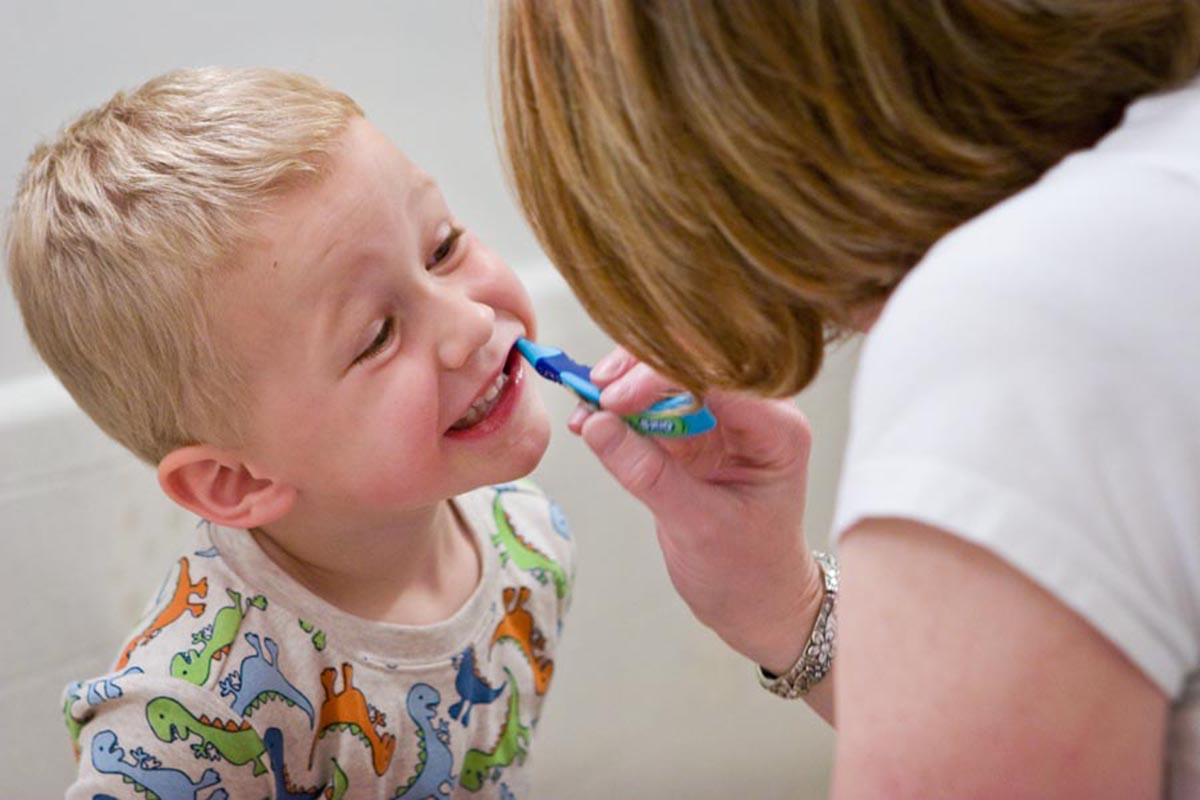Table of Contents
Keeping your young kids' teeth nice and clean can be challenging — not least because tiny ones probably won't understand why it's so important to stick a brush with less-than-pleasant tasting paste in their mouth twice a day. Nonetheless, habits formed early in life will stick with a child forever.
Here's what you need to know about oral hygiene and caries prevention in children with milk teeth.

Yes, Milk Teeth Matter!
Your child’s deciduous teeth (milk teeth, primary teeth) will start erupting at around six months of age, while the first permanent teeth will start to come in when your child is about six years old. Some people hold the (rather uninformed) opinion that, since deciduous teeth are going to be replaced anyway, it may not be so important to take care of them.
These "temporary" teeth are actually much more prone to decay than permanent ones and also play an important role in the proper development of the jaw. The primary teeth are smaller and less mineralized, and thus much easier for decay causing micro-organisms to destroy. The roots of these teeth also serve as a guide for the erupting permanent successors to follow in the same direction. Finally, decayed or removed milk teeth will interfere with varied and healthy nutrition.
Brush Your Child’s Teeth For Them
Infants of course require their teeth to be physically brushed by their parents. Use a soft toothbrush with a small amount of tooth paste. If you are worried about your child ingesting the toothpaste, you can avoid it completely. As your baby becomes a toddler and starts wanting to do everything by themselves, it's tempting to hand them the toothbrush. Careful: it's highly unlikely they'll follow instructions and brush their teeth as well as you could. Don't hand this important task over to your child too soon.
Once the child is able to brush on his or her own teeth, practice brushing together. Watching you do the same thing helps reinforce the habit, makes it a game of sorts and you can keep an eye on the child ensuring proper time and technique is being followed for oral hygiene.
Ban The Bottle
A lot of babies get into the habit of sleeping with a nursing bottle in their mouth. The sweetened milk used inside the bottle is a perfect substrate for the growth of micro-organisms. A typical pattern of decay known "baby bottle caries" is seen in babies who have this habit. It involves almost all the lower front teeth since this is where the milk pools.
Periodic Inspection
A simple visual inspection of your child’s teeth is extremely helpful, allowing you to catch the decay as soon as it begins. Waiting for the child to complain of pain or sensitivity is a bad idea, since most of the tooth structure has already been destroyed by the time pain sets in.
READ A Parents' Guide To Losing Baby Teeth
- Photo courtesy of makelessnoise via Flickr: www.flickr.com/photos/makelessnoise/3610103532
- Photo courtesy of Andy Hay via Flickr: www.flickr.com/photos/andyhay/222932647
- 1. http://www.colgate.com/en/us/oc/oral-health/life-stages/childrens-oral-care/article/sw-281474979276435
- 2. http://www.webmd.com/oral-health/tc/preventing-tooth-decay-in-young-children-topic-overview


Your thoughts on this